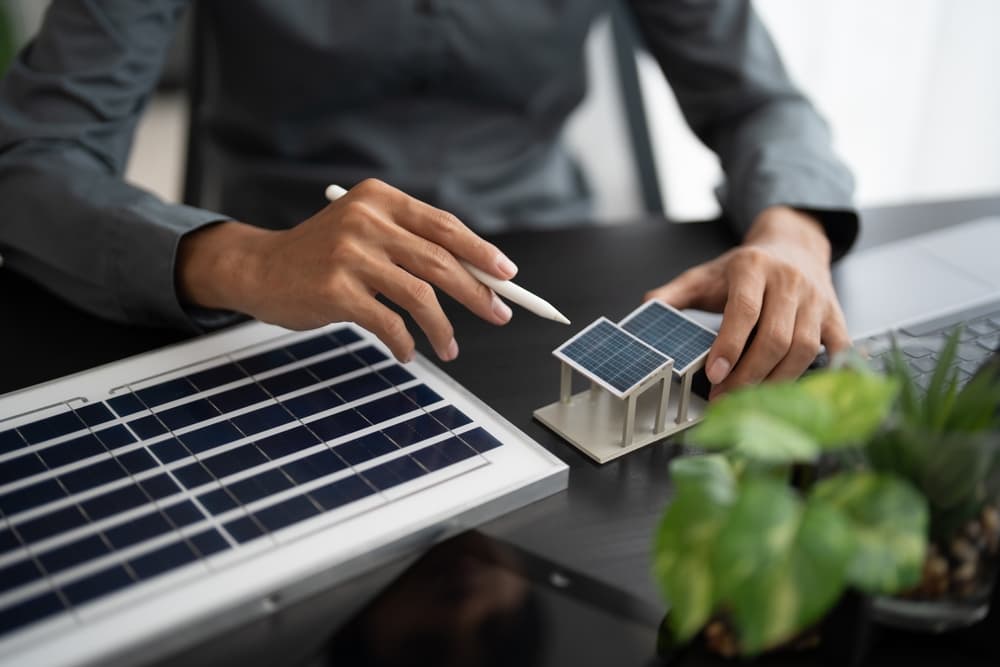Recognizing Solar Panel Company Misrepresentation
Solar panels have become an increasingly popular choice among homeowners and businesses seeking to reduce their carbon footprint and lower energy costs. Unfortunately, not all solar panel companies operate with integrity, leading to misleading claims and false promises. You should be aware of the common false claims made by solar companies and the signs that indicate you may have been misled.
Common False Claims by Solar Companies

Solar companies often make exaggerated claims about the benefits and savings associated with installing solar panels. Some of the most common false claims include:
- Guaranteed energy savings that fail to materialize: Solar companies may promise significant reductions in your energy bills, but the savings may not meet your expectations.
- Exaggerated claims about tax credits and government incentives: Some companies may overstate the potential tax credits and government incentives available and how they will impact your savings.
- Misleading information about energy bill reductions: Solar companies may provide inaccurate estimates of how much your energy bills will decrease after installing solar panels.
- False promises of immediate ROI or “no-cost” installations: Be cautious of companies that claim you will see an immediate return on investment or that the installation will be entirely free.
- Understanding maintenance and long-term costs: Solar panels require regular maintenance and may incur long-term costs associated with repairs and replacements. Some companies may downplay these expenses.
Signs That You Have Been Misled by a Solar Panel Company
If you suspect that a solar panel company has lied or misled you, there are several signs to watch out for:
Your Energy Bills Haven’t Decreased as Promised
One of the most common red flags is when your monthly utility bills remain high or even increase after installation. Many solar panel companies advertise substantial savings, sometimes claiming you’ll see dramatic reductions or even eliminate your energy bills entirely. If these promised savings haven’t materialized—and especially if your usage habits haven’t changed—this can be a sign that the company misrepresented the system’s expected output or failed to accurately account for your energy needs. In some cases, companies use generalized projections that don’t consider variables like your local climate, roof angle, shading from trees, or actual household usage.
You are Locked into an Expensive Financing Agreement with Hidden Fees
Many solar installations are financed through long-term leases or power purchase agreements (PPAs). While these can be useful for some homeowners, they often come with complex terms that are not thoroughly explained during the sales process. If your agreement contains hidden fees, escalating monthly payments, prepayment penalties, or maintenance costs that weren’t disclosed upfront, you may have been misled. Some customers find themselves tied to 20- to 25-year contracts with no clear way to exit or transfer the agreement, which can be particularly problematic if you need to sell your home. Understanding exactly what you agreed to—and what wasn’t disclosed—is imperative to evaluate whether you’ve been a victim of solar financing fraud.
The Company Pressured You into Signing a Contract without Full Disclosure
High-pressure sales tactics are a common theme in consumer complaints against unscrupulous solar companies. If you were given limited time to “lock in a deal,” promised special pricing that was “only available today,” or discouraged from taking time to review the contract or consult with an attorney, that’s a major red flag. Reputable solar companies should provide you with full transparency, including technical specifications, pricing breakdowns, and realistic savings estimates. If you felt rushed, coerced, or misled during the sales process, it’s essential to recognize that your consent to the contract may not have been truly informed.
The Solar Panels are not Producing the Energy Efficiency the Company Claimed
Performance guarantees are often used as selling points, with some companies promising a specific kilowatt-hour output or percentage reduction in electricity usage. If your panels are underperforming and not generating anywhere close to what was promised, this discrepancy can indicate that you were sold an inappropriate system for your home’s specific characteristics. Sometimes, companies oversell systems without conducting proper site assessments or deliberately exaggerate output to close the deal. If you’ve monitored your system’s performance over time and it consistently underdelivers, that can be a strong indicator of misrepresentation or even faulty equipment.
Beyond the four key indicators above, keep an eye out for other warning signs. These can include warranty terms that differ from what was promised, unexpected liens placed on your home, difficulty getting in touch with customer service after installation, or misleading claims about eligibility for government tax credits.
If any of these signs apply to your situation, it’s critical to act quickly. Document everything, including your contract, marketing materials, communications with the company, and your utility bills. Then, contact a solar financing fraud lawyer who can help you evaluate your legal options and determine the best path forward to recover your losses and hold the company accountable.
Understanding Your Consumer Rights in Solar Contracts
As a consumer, you have certain rights and protections when entering into a contract with a solar panel company. Familiarize yourself with these rights to ensure you can take appropriate action if you believe you have been misled or defrauded.
Federal and State Laws Protecting Solar Consumers
There are federal and state laws in place to protect consumers in the solar industry. Understanding these laws can help you identify when your rights have been violated. Some critical laws include:
- Truth in Lending Act (TILA): TILA is a federal law that requires lenders to disclose key terms and costs associated with financing agreements. It applies to solar financing and can help you identify deceptive or unfair terms.
- State-specific consumer protection laws against deceptive business practices: Many states have laws that specifically protect consumers from dishonest practices in the solar industry. Familiarize yourself with the laws in your state to understand your rights as a solar panel customer.
- Federal Trade Commission (FTC) rules on fraudulent energy savings claims: The FTC has established guidelines to prevent solar companies from making false or misleading claims about energy savings. Familiarize yourself with these guidelines to spot fraudulent advertising.
Reviewing Your Solar Panel Contract
When reviewing your solar panel contract, it is essential to carefully examine the key terms and clauses that impact your rights and financial obligations. Some areas to focus on include:
- Key terms to examine in your contract:
- Pricing and payment terms
- Performance guarantees
- Warranty details
- Termination or cancellation policies
- Hidden clauses that may limit your legal options:
- Binding arbitration clauses: These clauses can limit your ability to take legal action and instead require dispute resolution through arbitration.
- Non-disclosure agreements: These agreements may prevent you from discussing your experience with the solar company publicly.
- How to identify deceptive or unfair terms:
- Consult with an attorney who focuses on solar panel fraud or consumer protection if you are unsure about any terms or clauses in your contract.
Steps to Take If You Believe You Were Deceived
If you believe that a solar panel company has lied about your potential savings or misled you in any way, it is essential to take the following steps to protect your rights and explore your legal options.
Gather All Documentation
Collect all relevant documentation related to your solar panel installation and contract, including:
- Original contract
- Sales agreement
- Financing documents
- Warranty details
- Any emails, text messages, or advertisements that include misleading claims
- Copies of your energy bills before and after installation to compare actual savings
Having a complete record of all communications and documents will be invaluable when presenting your case.
Contact the Solar Company for an Explanation
Before taking legal action, it is recommended that you contact the solar company directly to seek written clarification on any misleading claims or discrepancies. Send a formal letter requesting an explanation and corrective action.
File a Complaint with Consumer Protection Agencies
If the solar company fails to address your concerns, you may need to escalate the matter by filing a complaint with relevant consumer protection agencies. Some key agencies to consider include:
- Federal Trade Commission (FTC): The FTC accepts complaints regarding deceptive advertising and fraudulent claims. File a complaint online through their website.
- State Attorney General’s Office: Your state’s Attorney General’s office may have a consumer protection division where you can file a complaint. Check their website for specific instructions.
- Better Business Bureau (BBB): The BBB allows you to raise awareness of unethical business practices by submitting a complaint. While they cannot enforce legal action, it can help bring attention to the company’s practices.
Can You Sue a Solar Panel Company for Misrepresentation?
If your attempts to resolve the issue directly with the solar company and through consumer protection agencies are unsuccessful, you may have grounds for legal action. Some potential legal claims include:
- Fraudulent Misrepresentation: If the solar company knowingly deceived you about potential savings or made false claims, you may have a claim for fraudulent misrepresentation.
- Breach of Contract: If the terms of the agreement, such as the promised energy savings, were not fulfilled, you may have a claim for breach of contract.
- Unfair and Deceptive Trade Practices: If the solar company’s marketing tactics or contract terms violate consumer protection laws, you may have a claim for unfair and deceptive trade practices.
- Predatory Financing: If the solar company misled you with hidden costs or deceptive loan agreements, you may have a claim for predatory financing.
Potential Remedies in a Lawsuit
If you decide to pursue legal action against the solar panel company, there are potential remedies that you may seek:
- Contract cancellation and refunds: If the solar company breached the terms of the contract, you may be entitled to cancel the contract and receive a refund of any payments made.
- Compensation for financial losses: If you have incurred financial losses due to the solar company’s misrepresentations, you may seek compensation for those losses.
- Lawsuit settlements or class action lawsuits: Depending on the severity of the misrepresentations and the number of affected consumers, a lawsuit may result in a settlement or class action lawsuit.
How a Solar Financing Fraud Lawyer Can Help

Navigating the legal process can be challenging, so it is essential to seek guidance from a seasoned solar financing fraud lawyer. A skilled solar panel fraud attorney can provide valuable assistance in the following ways:
Investigating Your Claim
- Reviewing contracts and sales tactics to determine instances of fraud or misrepresentation.
- Gathering expert testimony on false advertising claims.
- Identifying any violations of consumer protection laws.
Negotiating with the Solar Panel Company
- Demanding contract revisions or seeking full refunds.
- Holding the solar company accountable for its deceptive practices.
Filing a Lawsuit If Necessary
- Guiding you through the legal process, from filing the initial complaint to pursuing legal action in court.
- Fighting for your rights and seeking appropriate remedies for the harm you’ve suffered.
Protect Your Rights and Seek Legal Help Today
If a solar panel company has lied about your potential savings, it is essential to take action and seek justice for the misleading information you were provided. By contacting an experienced solar financing fraud attorney, you can manage the legal options available to you and potentially recover your losses. Remember that you have rights as a consumer, and there is support available to help you address the dishonesty of the solar panel company. Don’t hesitate to take action and protect your financial interests.

